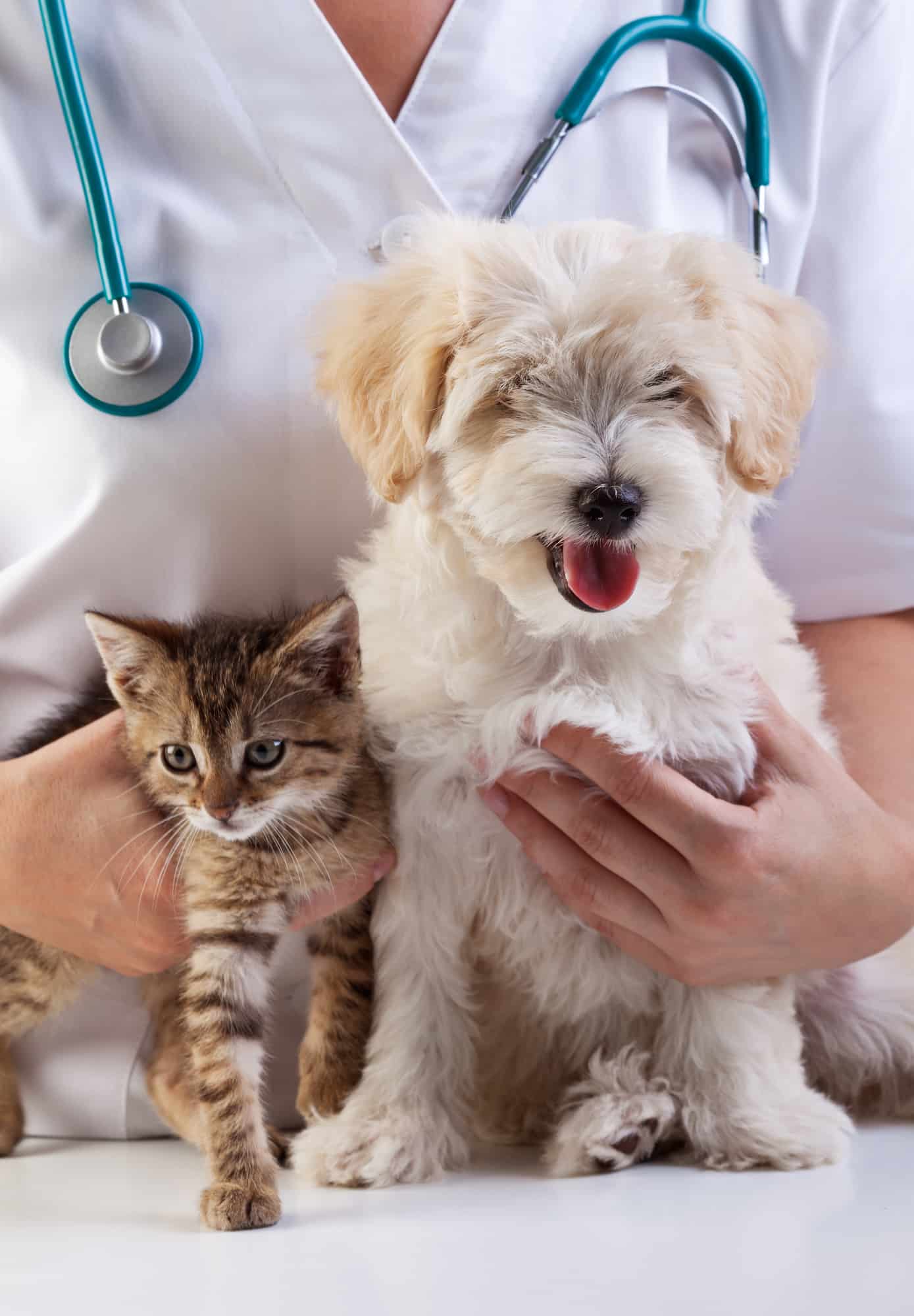Find Out What Can Be Dangerous for Your Pets
Pet poison prevention week begins on March 17, and there’s no better time to discuss this important and scary subject. Many people don’t realize the dangers of certain foods, plants, and other common household objects to pets. Sadly, many of the things your pet can ingest in your home or yard can cause serious illness or even death. Prevention of this catastrophe begins with knowledge. Learn which items pose a threat to the health of your cat or dog and the symptoms that signal pet poisoning.

Poisonous Plants
There are many indoor and outdoor plants that are dangerous to both cats and dogs. While you may think that your pet has no interest in eating plants, they may gnaw on woody trunks or swallow nuts. Even the pollen from certain plants can be dangerous. Some of the plants most commonly found in homes and yards that are toxic for pets include lilies, sago palms, ivy, azaleas, tomato plants, and aloe vera.
Lilies, English ivy, and aloe vera are all common houseplants. Lilies aren’t dangerous for dogs but some species cause serious symptoms in cats. Ingestion of the plant or pollen can cause vomiting, diarrhea, weakness, and kidney failure. Aloe vera is a medicinal plant that soothes human skin problems. When your cat or dog ingests the sap, the results may include diarrhea, vomiting, tremors, and mental reactions. English ivy is often grown indoors in pots or outside to trail over fences and walls. The effects of this plant on your cat or dog may include vomiting, abdominal pain, diarrhea, and hypersalivation.
Sago palms, tomato plants, and azaleas are commonly found in lawns. Sago palms are grown indoors and outdoors. They are extremely poisonous to both cats and dogs. If your pet ingests any part of this plant, symptoms may include vomiting, bloody feces, coma, and seizures. Azaleas are flowering shrubs that are toxic to pets. Ingestion can cause weakness, blindness, and cardiac failure. If you are a pet parent with a green thumb, it is vital to keep dangerous plants away from your pets.
Dangerous Snacks
There are many snacks that are tasty for humans but extremely dangerous for pets. Certain candies are a common reason for pet illnesses. Most people are aware of the dangers of chocolate to pets. However, other dangerous foods are often overlooked.
Xylitol is probably not an ingredient most people are familiar with, but you’ve probably consumed it before. Xylitol is a sweetener found in gum, candy, and baked goods that can be deadly for your dog. Early symptoms include vomiting and lethargy. More serious effects include a blood sugar drop and liver failure. A small amount can cause severe symptoms within 15 to 30 minutes.
Surprisingly, fruits and vegetables can be dangerous to animals as well. Raisins can cause vomiting, lethargy, and lack of urination. Ingestion of raw onions and garlic can result in weakness, anemia, and liver damage.
Human Medications
If they aren’t stored properly, your medications can pose a serious danger for your pets. Many commonly prescribed and over-the-counter medicines make pets seriously ill. There are several medicines on the Pet Poison Helpline top ten poisons list for both cats and dogs.
Antidepressants and stimulant medications prescribed for ADHD are frequently reported in the poisoning of both cats and dogs. This is likely because they are commonly prescribed medicines. Early symptoms of these poisonings include vomiting and diarrhea. Antidepressants may also cause tremors, high body temperatures, and seizures. Even very small amounts of prescription stimulants can cause life-threatening seizures and heart problems in pets.
Commonly reported over-the-counter medicines include anti-inflammatories, acetaminophen (Tylenol), and vitamin D. These are common OTC medications found in many homes. Early symptoms of animal poisoning include abdominal pain and vomiting. More serious dangers of anti-inflammatories (NSAIDs) include intestinal ulcers and kidney failure. Acetaminophen is especially dangerous to cats, potentially resulting in damage to red blood cells. It has the same life-threatening effect on dogs when large doses are ingested, and can also cause liver failure.
Prevention is the best medicine when it comes to the dangers of pet poisons. Some poisoning symptoms are irreversible. No matter how quickly you get help, you may not be able to save your furry family member. However, if you suspect your pet has already ingested something poisonous, it is important to contact your veterinarian immediately.
